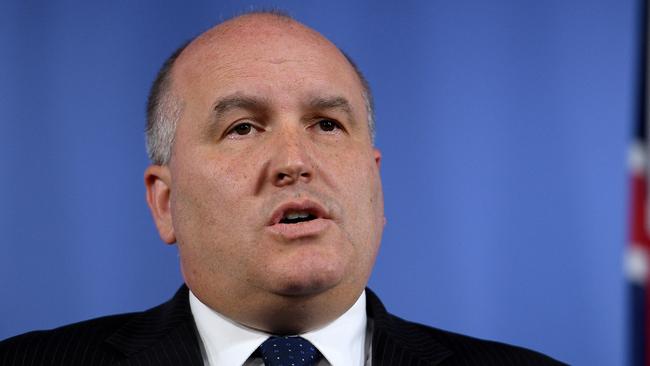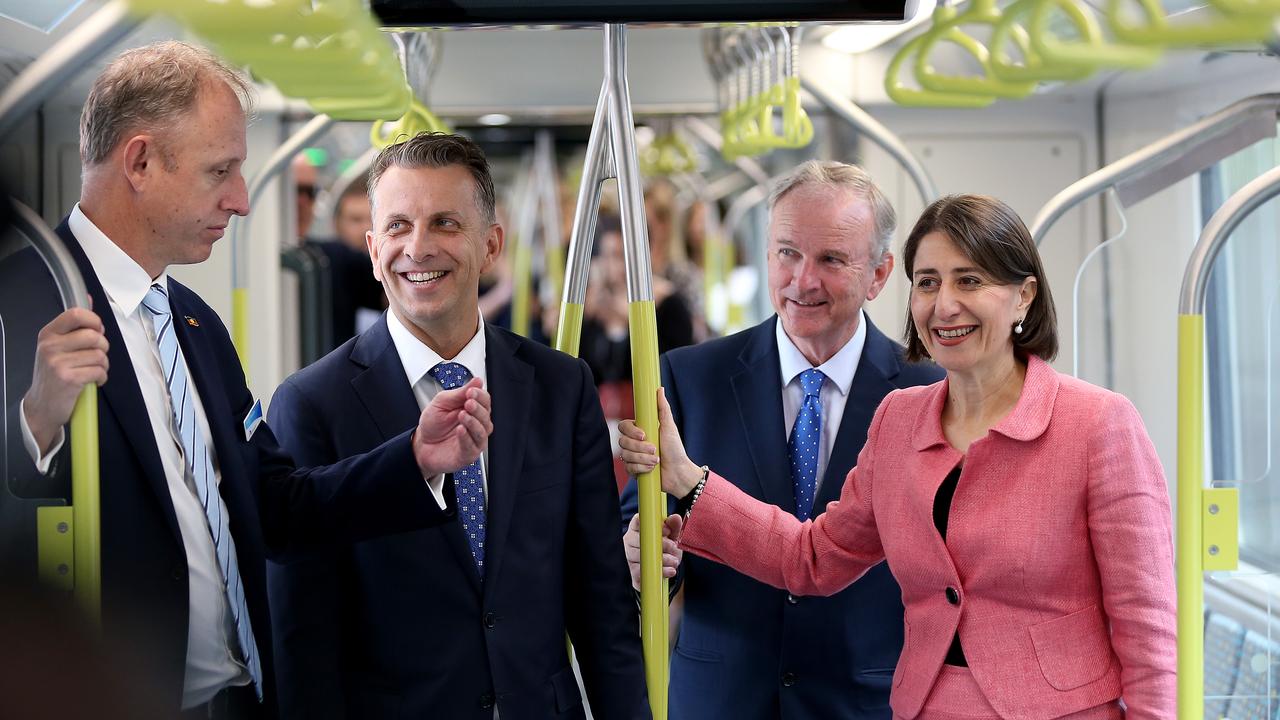Teachers and doctors to alert police to potential lone-wolf terrorists
The NSW government will today reveal a new tactic in the fight against homegrown terrorists.

The role of teachers, healthcare workers and the private sector in identifying lone-wolf “red flags” has been dramatically ramped up under the NSW government’s first multi-agency counter-terrorism strategy.
The strategy — launched today by state Counter Terrorism Minister David Elliott — follows a confidential six-month review by the Australian Strategic Policy Institute of the state’s counter-terrorism response capacity.
Mr Elliott said the strategy recognised the need for more centralised co-ordination between “hard- end” terrorism responders such as police and a broad range of government, community and business groups.
This included corrective services, education and health as well as transport, local government and a large army of private sector security specialists based at vulnerable targets such as shopping centres.
Mr Elliott said all had a critical role in gathering intelligence and alerting authorities to potential threats.
“I’m very comfortable with the way our state police work with their federal counterparts and intelligence agencies,” he said.
“What keeps me awake at night are homegrown extremists, the 16-year-old boy who is alone in his bedroom on the internet getting radicalised.
“If a kid is going to take a perverse view of their faith, there’s not a lot we can do.”
There are currently 50 self-proclaimed jihadists in jail in Australia, with 16 plots by violent extremists having been disrupted in the past two years, including an alleged conspiracy to blow up Melbourne’s Federation Square and Flinders Street Station on Christmas Day, 2016.
In the same period there have been five lone-wolf attacks, including the murder of NSW police accountant Curtis Cheng, who was gunned down by a 15-year-old boy in October 2015 outside Sydney’s police headquarters, and the fatal stabbing of popular Melbourne restaurateur Sisto Malaspina last month.
ASPI executive director Peter Jennings, who headed the counter-terrorism review, said a new unit would be established in the NSW Department of Premier and Cabinet to help co-ordinate intelligence-sharing and manage inevitable “institutional tensions’’ between police and other groups such as teachers and doctors.
“Healthcare professionals, for example, don’t want to just hand over their patients to police, but there is a big mental health dimension to this,’’ Mr Jennings said.
“What the strategy has done is help formalise those relationships to ensure they don’t work in silos.”
Since the fall of Islamic State in Syria last year, Australian intelligence authorities have been on high alert for the return of a flood of battle-hardened ideologues, including an estimated 100 Australians who joined the ranks of foreign fighters in Syria.
Mr Elliott said that under the new counter-terrorism strategy a range of programs had been boosted and expanded, including doubling the capacity of the Supermax high-risk prison facility at Goulburn, in southern NSW, from 45 to 75 inmates.
He said funding for the NSW Step Togetherprogram, ahotline for families worried a relative may have been radicalised, will also be boosted.
Despite early criticism of the hotline, Mr Elliott said the review found that more than 800 calls had been made to the service since its launch in July 2017 and there were 60,000 online inquiries.
“It’s not about the volume of calls. Even if we just save one life by diverting a potential terrorist, then the money has been well spent,” Mr Elliott said.


